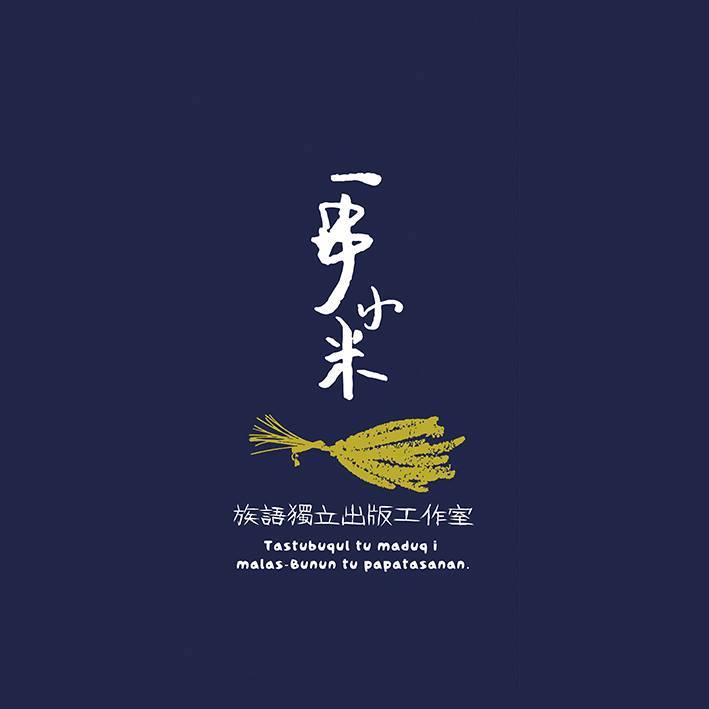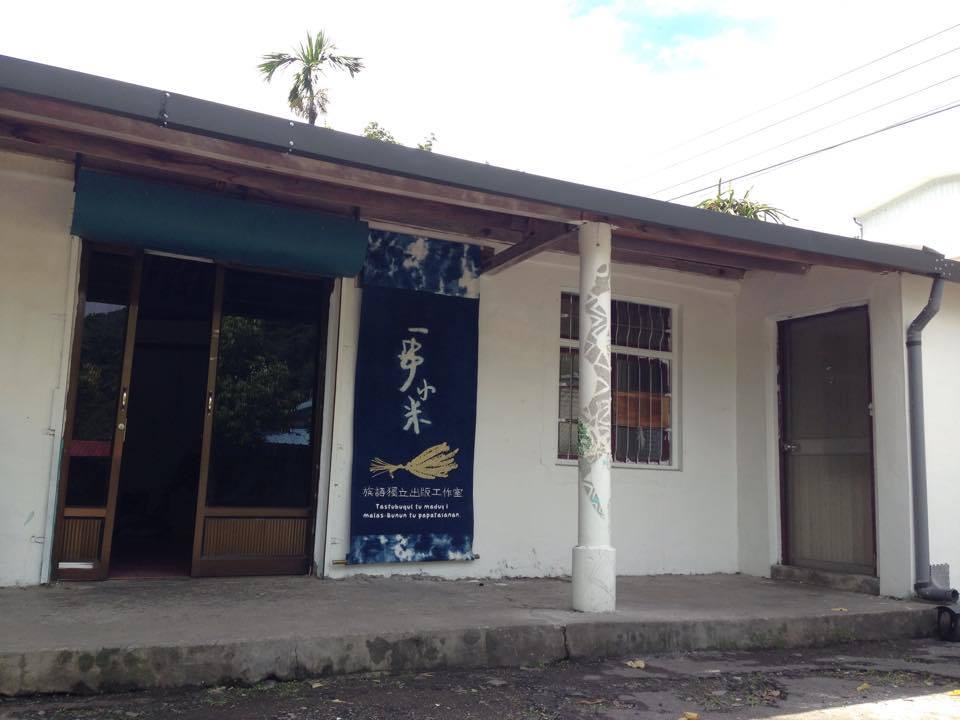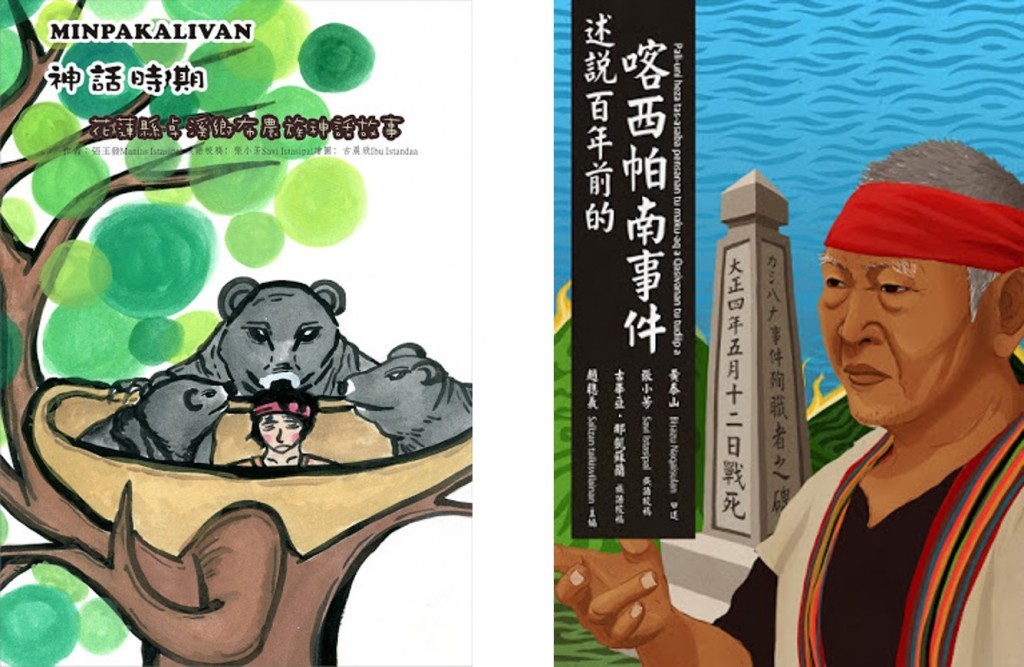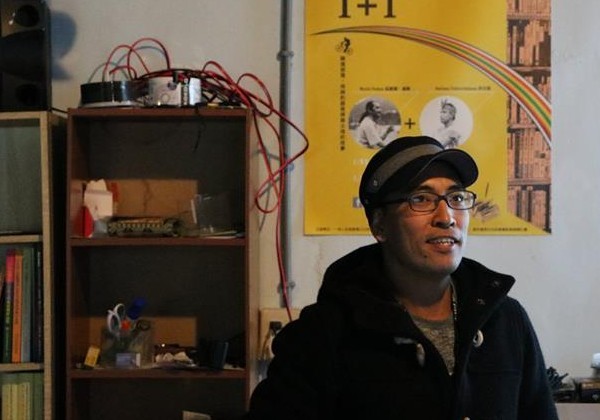Tastubuqul tu maduq independent bookstore: Stringing traditional tribal language with aspidistra
Translated by 半月
In 2016, the Council of Indigenous Peoples selected 20 business plans, including agriculture, bio-tech application, cultural and creative industry and travel, for a subsidy for start-ups. We interviewed some teams almost a year after getting their 1 million subsidy from the government.
“I would like to connect tribes of the ancestors with my pen.” said Salizan Takisvilainan (in Bunun language, or Chao Tsung-I, in Mandarin Chinese), founder of Tastubuqul tu maduq independent bookstore, proudly said.
There are many independent bookstores in Taiwan. The collection of books and decoration depends heavily on the owner. However, what the Bunun guy Salizan wants is more than just a bookstore. He is also driven to publish books written in Bunun language, letting his fellow Bunun people get to know more about Bunun culture. He also does bilingual books in Bunun and mandarin Chinese, hoping to introduce Bunun culture to more people.

“I was called by Tina.”
“Tina means mother in Bunun.” said Salizan. Because of his love for literature, Salizan went to study in the department of Chinese language and literature in YZU. He has won an award for his poem Words From Tina written in university. Since then, he has used his pen to write about Bunun.
In Words From Tina, Salizan talked about the sadness young Bunun people felt about the loss of their mother tongue. “A Bunun person not being able to talk in Tina’s language is like a trapped muntjac not being able to jump.” 15 years after writing this poem, he still ruminates on this question. Has he freed himself from the trap? The soft voice lingering in his mind is the call of Tina… Salizan believes that the only way to get close to Tina again is to go back to the tribe.
Three years ago, Salizan worked as a teacher of minority culture in Zhuo Xi Elementary School in Hualien. He often discussed with the elderly about traditional culture, while collecting legends, myths and other oral historical data at the same time. As he collected more and more information, he knew that it was time to go back to work with Nina. With the subsidy of the “Youth Go! Tribal Culture Action Project” held by the Ministry of Culture, Salizan quit his job and founded Tastubuqul tu maduq workshop back in Zhong-Ping tribe.
Connecting knowledge millet with toughness
In October 2015, Tastubuqul tu maduq workshop was founded officially in Zhong-Ping tribe through the ritual of pig killing and pork sharing. “Maduq means millet. Buqul is aspidistra in Bunun language. Aspidistra is very difficult to obtain. However, using this plant as rope to connect millet makes it solid and difficult to tear apart. This is why the seniors in the tribe use aspidistra to string millet. This also represents the toughness of Bunun people.” This is what Salizan expects for himself. He wants to stay tough and try to connect traditional tribal knowledge, like aspidistra.
Salizan realized that they need a hub to gather scattered information of their traditional culture. His fellows read about their history and ways of living. However, there lacked a physical space to organize and spread information. Thus, he started to collect second hand books about indigenous culture on facebook. With the funding from the government, he organized events like Indigenous Author Talks and literary tours. In addition, students and professors from NDHU came to help design and build the studio with him.
Together with them, Salizan made the studio not only a library, but also a place to work and for people to hang out. It gradually became a spot in Zhong-Ping tribe where people meet, read and talk. Students and teachers from the department of Art and Creative Industries also designed postcards with elements of Bunun legend and myths to raise fund and advertise for the studio.

Let’s compose in Tina’s words
In 1915, the Quasivanan conflict between Bunun and Japanese police around Lekuleku River caused many Bunun people to move. A part of this group becomes Zhong-Ping tribe in Hualien today. But what happened exactly during the conflict? How did Quasivanan people move from the mountain to the Zhong-Ping tribe now?
Born in Zhong-Ping tribe, Salizan really wants to find the lost story of his home town. Thus, he work with colleagues in Tastubuqul tu maduq workshop to find the history behind the Quasivanan monument, which is the only object linked to that historical event left today.
With the data, in field studies and interviews with senior Bunun people, Salizan published the book Pali-uni heza tas-asaba pensanan tu maku-aq a Qasivanan tu tudiip a. The book collects the Qasivanan conflict, which has been long forgotten. In the same year, the studio collected data regarding Bunun language, customs, legends and publish the book Bunun legends in Zhuo-Xi.

A real Independent bookstore
Independently published or not, many books about indigenous culture remain unknown to the mass. Salizan applied the subsidy from “Indigenous Entrepreneur Funding project” of the Council of Indigenous Peoples and founded the bookstore. The project provides not only the funding, but also courses, business counselling services. Salizan learned to analyze the strengths and weaknesses of independent bookstore in the market and tried to make it more attractive to customers.
Salizan’s plan was to combine bookselling and tourism. Thus, customers could come to read and buy books but also stay there overnight. Also, the work “independent” is important. Salizan wanted to make this bookstore unique in his own way. He aimed to build a brand with indigenous culture. “I would like to do what my fellow indigenous people what to do, say what they want to say, and publish what we want to publish.”
Harvesting millets of traditional tribal knowledge.

However, they faced many difficulties. Few people in the studio can write in Bunun language and they cannot afford regular payment for writers. “Subsidy from the government does not last long.” This is why young people are reluctant to come back to tribes.
Despite this, Salizan still has the dream of creating a Bunun language foundation. Bunun writers can get paid regularly and compose freely there. They can work together to promote their mother culture Bunun. “We are like strings of millet connected with our culture.” Salizan said. Despite the difficulties they face, Salizan insists on passing down Bunun traditional culture and words of Tina to the next and the next generation and on.
中文版連結
Cover photo from: Tastubuqul tu maduq











留言討論